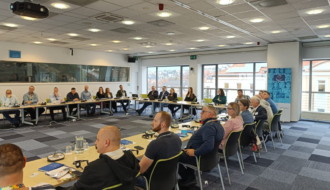Ozsváth (2014) reports on the local politics of the Hungarian mayor László Bogdán. The head of the community of Cserdi strives for a social policy, in which the unemployment rate is as low as possible and the work ethic as high as possible. László Bogdán, who is himself a Rrom, has significantly reduced the unemployment rate through his active economic policy: “I am mayor since 2006”, says the feisty 41-year-old, “before we had approximately 200 burglaries a year, today there is only a third of it. […]. We now have a recreation home at the Lake Balaton, 20 acres of woods, we build vegetables on 15 acres, and have 3,000 square meters of greenhouses. “As the first action, Bogdán closed the local pub; he built a bridge between the non-Roma and Roma neighbourhoods, induced the construction of houses, and most importantly: he brought his citizens to work through public funding. “I do not believe in democracy, in which one queues for welfare, but not for work”, he says. […] Also, in the minds of the other Hungarians – the non-Roma – the mayor of Cserdi wants to change something: together with villagers he drives to Budapest and distributes food from its own surplus to the needy. […] For the mayor of Cserdi, it is about helping, but also about the headline: Roma help the poor.” With young Rromni from humble origins, Bogdán goes to the University, to show them alternatives to the professional life of their parents. In Hungary, there are 600,000 to one million Rroma. They belong to all social strata. Not all are marginalised and poorly educated, as it is usually suggested in the media. By continuing prejudices against the minority, they are in fact particularly affected by discrimination and exclusion, in the working environment and in education.
- Ozsváth, Stephan (2014) Das Wunder von Cserdi. In: Deutschlandfunk online vom 4.11.2014. http://www.deutschlandfunk.de/ungarn-das-wunder-von-cserdi.795.de.html?dram:article_id=302208


